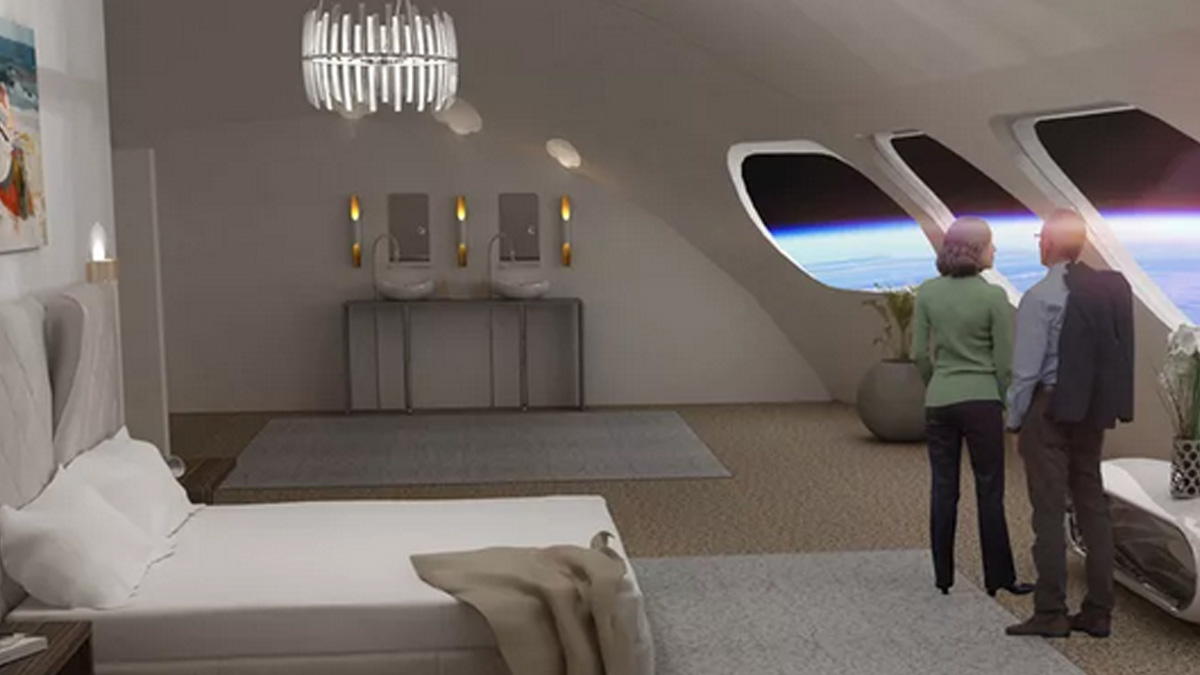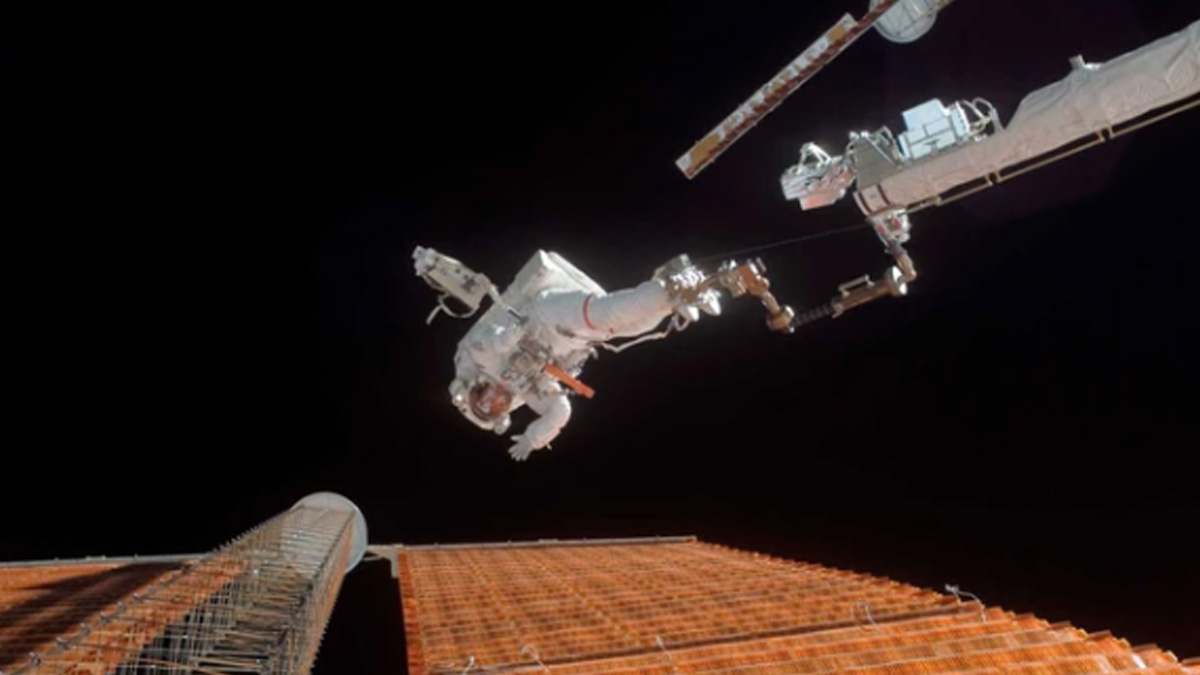
Voyager Station will feature a restaurant, bar, and vacation villas you can purchase
Space tourism is no longer the stuff of science fiction. Rather, it’s just around the corner.
Aside from private missions to space — like 2021’s Inspiration4, during which members of the general public spent a few days in a SpaceX vehicle circling the Earth, and the upcoming DearMoon mission, slated for 2023, which will see civilians circling the moon — there are also a few space “hotels” in the works.
One is Orbital Assembly’s Voyager Station, currently scheduled to begin construction in 2026 and welcome guests by the end of the decade. The corporation is also slated to launch Pioneer Station, a smaller gravity-enabled “space-based business park” that’s on track to being fully operational as early as 2025.
Taking cues from science fiction films like “2001: A Space Odyssey” and “Interstellar,” Voyager Station and Pioneer Station will each create their own artificial gravity by using centrifugal force. The new space stations will take on the shape of a Ferris wheel, spinning to simulate gravity in their pods.
Though they may look unusual compared to hotels on Earth, the rooms and amenities aboard each station will be largely familiar to regular travelers. On Voyager Station, there will be luxurious accommodations for up to 400 guests, including villas available for purchase as vacation homes as well as themed restaurants, concert venues, bars and lounges with views of the Earth, gyms, and health spas. In essence, it’s your standard high-end resort, just in space.

Pioneer Station will be smaller in size, with enough space to accommodate up to 28 guests. Rather than providing super-luxe amenities like the Voyager Station, its main function is to serve as a blended commercial, research, and tourism facility.
Due to the presence of gravity on the station, guests will be able to do regular activities — eat and drink or sleep — without having to worry about spills or floating, unlike on current space stations.
“For the average person, being in space will be a sci-fi dream experience,” said Orbital Assembly’s chief operating officer Tim Alatorre in a press release. “Our vision is to make space a destination people will yearn to visit, with familiar elements provided by the presence of gravity.”
Plans for the space hotel were first revealed in 2019 under the name Von Braun Rotating Space Station, but there has been a bit of rebranding since then — while aerospace engineer Wernher Von Braun was crucial to the development of rockets, he also worked under the Nazi regime in Germany before coming to the U.S. and eventually joining NASA.
The opening date has also been pushed back — the company’s original estimate for the Voyager Station’s debut was 2025 — which calls into question the ambition of a debut by 2030. According to Orbital Assembly, any related delays were due to the Covid-19 pandemic and not technological holdups.
In any case, it’s likely space hotels will become a reality soon enough, especially given the fact that Voyager and Pioneer Stations aren’t the only residential stations currently in development (Axiom Space’s Axiom Station is also in the works).
Orbital Assembly is currently taking reservations for stays aboard Pioneer Station, which is expected to open to the public in 2025. Interested parties are encouraged to reach out via the online contact form to learn more about pricing (which hasn’t been publicly released yet), trip duration, and availability. Similar information for Voyager Station has not been released — keep an eye on the company’s website for updates.
Alatorre hopes spending time in space will also help to influence and improve guests’ experience on Earth upon returning from such a unique and inspiring journey. “Once people get to space, it will change their perspective about Earth. Space travel is still in its infancy, and we’re excited to do our part to push it forward to help improve life on Earth.”
Source: Travel + Leisure










